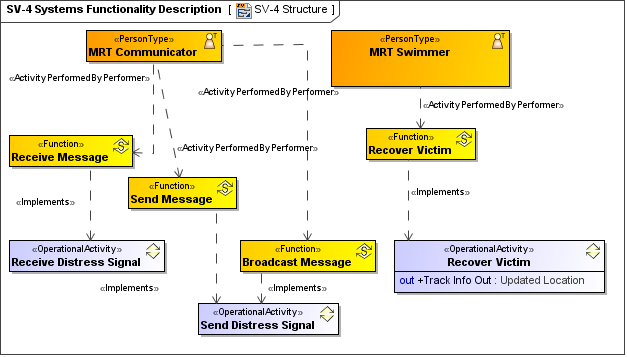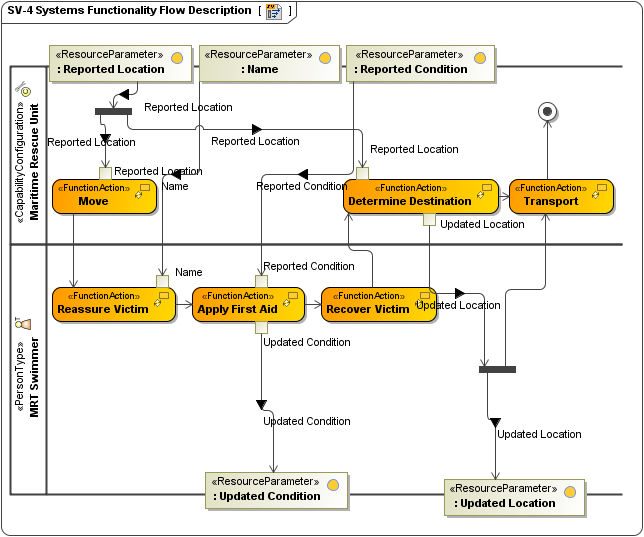Description
The SV-4 addresses human and system functionality.
The primary purposes of SV-4 are to:
- Develop a clear description of the necessary data flows that are input (consumed) by and output (produced) by each resource.
- Ensure that the functional connectivity is complete (i.e., that a resource’s required inputs are all satisfied).
- Ensure that the functional decomposition reaches an appropriate level of detail.
The Systems Functionality Description provides detailed information regarding the:
- Allocation of functions to resources.
- Flow of resources between functions.
The SV-4 is the Systems Viewpoint model counterpart to the OV-5b Activity Model of the Operational Viewpoint.
The intended usage of the SV-4 includes:
- Description of task workflow.
- Identification of functional system requirements.
- Functional decomposition of systems.
- Relate human and system functions.
Implementation
SV-4 can be represented using:
- A SV-4 diagram for System Function hierarchies. This diagram is based on the UML Class diagram.
 SV-4 Systems Functionality Description
SV-4 Systems Functionality Description - An SV-4 diagram for System Function flows. This diagram is based on the UML Activity diagram.
 SV-4 Systems Functionality Flow Description
SV-4 Systems Functionality Flow Description - A UML Class diagram.
- A UML Activity diagram.
- A SysML Block diagram.
- A SysML Activity diagram.
The SV-4 is the behavioral counterpart to the SV-1 Systems Interface Description (in the same way that OV-5b Operational Activity Model is the behavioral counterpart to OV-2 Operational Resource Flow Description).